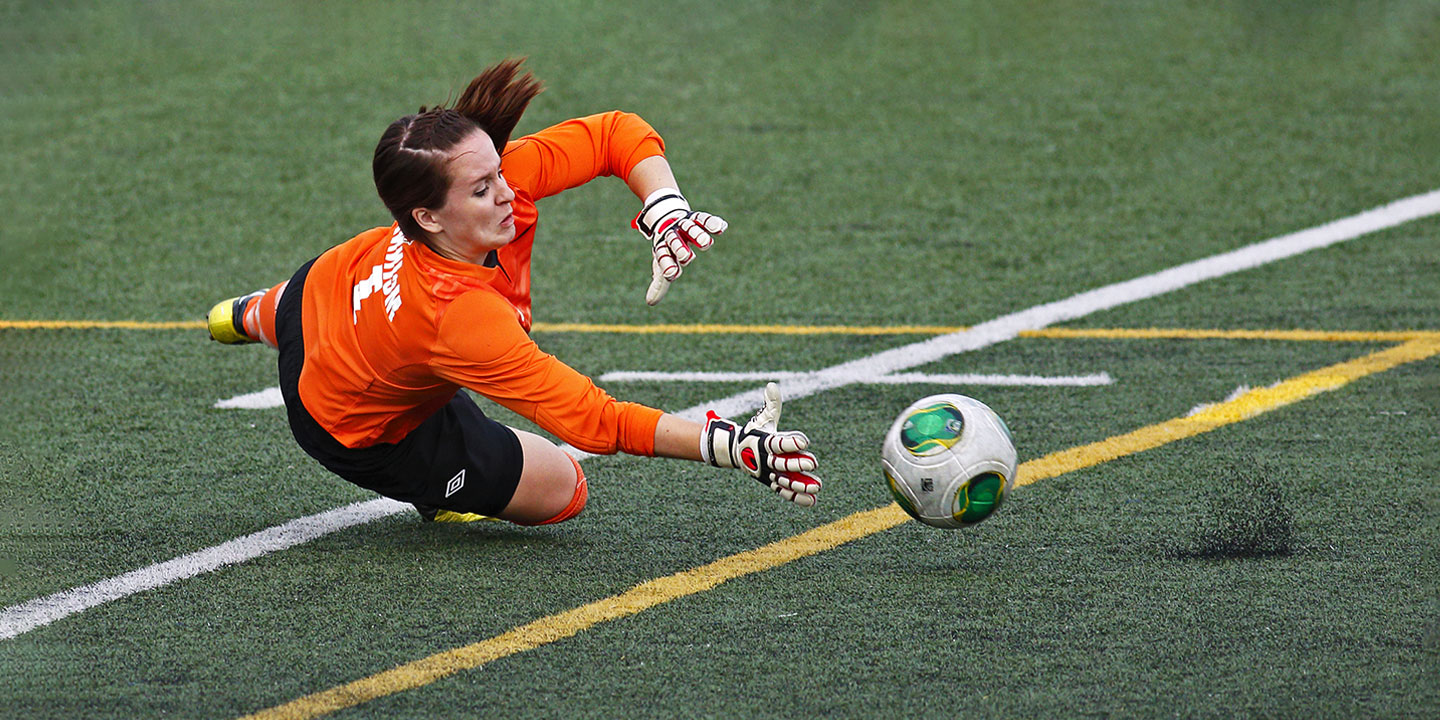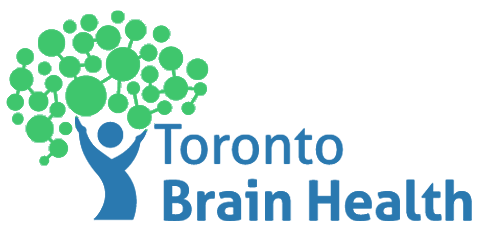Sport Concussion Clinic
Our passion is getting elite and professional athletes back in the game. We provide baseline neuropsychological assessments, treatment of persistent concussion symptoms, and post-injury evaluations to inform return to play.
Everyone’s talking about concussion in sport; baseline testing, identification of symptoms, and guidelines for return to play. However, there is an important piece missing, the treatment of persistent concussion symptoms. Following concussion, 15-20% of individuals experience persistent symptoms. These symptoms can be resistant to physical rehabilitation alone.
The consequences of not treating persistent symptoms in professional athletes can be severe, including prolonged absence from the game, retiring prematurely from the sport, and living with symptoms long after retirement. Even more concerning is when athletes find themselves in a “new normal”, filled with headaches or migraine, light, sound or screen sensitivities, decreased tolerances, inability to pursue the things they love, irritability, and finding it difficult to carry on. Understandably, these challenges make them worry about the future.
At Toronto Brain Health, we not only provide assessment to high performance and professional athletes, but we fill in the missing piece, by also treating the persistent symptoms identified in the evaluation.

Athletes train and play hard. Be it in hockey, football, boxing, soccer, or basketball. Sometimes a hit can go beyond the natural defences of the body or capacities of the best sports gear. Diagnosis and management of concussion often require a multidisciplinary team approach.
Neuropsychologists who work with athletes, also known as sports neuropsychologists, play a crucial role in the athlete’s care team, particularly in mitigating prolonged recovery (i.e., persistent or worsening symptoms 2 to 4 weeks post-injury; Patricios et al., Consensus statement on concussion in sport, 2023).
Sport Concussion Assessment:
- Baseline neuropsychological assessment.
- Post-injury neuropsychological assessments, as part of multidisciplinary care informing return to play and/or school/ learning.
- Consultation to identify risk factors for prolonged recovery, factors maintaining symptoms, and to discuss treatment plan to expedite recovery, return to play and for student athletes, return to learning.
- Neuropsychological assessment and/ or consultation to retired professional athletes with ongoing or newly emerging psychological and/or cognitive symptoms, including after 65+ years of age.
FAQs about Sport Concussion
If you have any other questions, please contact us.
blank
- blank -
What is a neuropsychologist?
Neuropsychology is a specialty of clinical psychology that addresses the relationship between the brain, nervous system, thoughts, emotions, and behaviour. Neuropsychologists assess many changes that can occur following a concussion including in memory, attention, organization, processing speed, irritability, depression, anxiety, low stress tolerance, trauma, insomnia as well as onset of chronic pain/ headaches, and light and sound sensitivities. These changes can be temporary or persistent depending on pre-existing health and psychological factors. Neuropsychologists are uniquely qualified to assess and treat the full spectrum of brain, emotion, pain and behaviour changes due to concussion.
Neuropsychologists have training and expertise in functional neuroanatomy, neuropathology, behavioural neuroscience, psychological and neuropsychological assessment, cognitive rehabilitation, and psychological therapies, which are invaluable to the comprehensive management of sports-related concussions. In the past few decades, neuropsychologists have significantly contributed to the knowledge, research, and clinical practices pertaining to traumatic brain injuries, most recently including those sustained in sport.
What is a sports neuropsychologist?
"A subspecialty of clinical neuropsychology that applies the science and understanding of brain-behavior relationships to the assessment and treatment of sports-related brain injury. The practice of sports neuropsychology requires education, training, experience, and competence in the primary field of clinical neuropsychology, followed by a secondary specialization through experience and understanding of applying clinical neuropsychology to the unique demands of evaluating and treating brain injury in the sports domain.” - An Official Position of the Sports Neuropsychology Society.
When to see a sports neuropsychologist after concussion?
For most athletes, post-concussive symptoms resolve within 10-14 days. By approximately 2 weeks, based on the pooled mean across multiple studies, athletes (18 years and older) make a full return to sport following evidence-based recommendations. By an average of 10 days, studies show that 93% of student athletes of various ages make a full return to learning with no additional academic support (Putukian et al., 2023).
Each athlete’s return to school and/or sport plan should be evaluated on an individual basis, including consideration of specific factors that can impact their recovery and successful return. If an athlete’s symptoms worsen or their recovery plateaus between 2 to 4 weeks, adding a neuropsychologist to the care team can be invaluable in identifying and treating barriers to recovery and return to play or learning. However, involving a neuropsychologist can be beneficial at any point following injury; early on for those with risk factors for prolonged recovery, or later after all other avenues have been exhausted as gains are possible even months to years after injury depending on the clinical profile of the athlete.
In our clinical experience, we have seen professional or elite athletes prematurely retire or leave the sport only to make a full recovery up to a decade post-injury with neuropsychological rehabilitation. Many symptoms in uncomplicated concussions (e.g., no evidence of more severe brain injury such as skull fracture or brain bleed) are amenable to full resolution when a broader biopsychosocial approach is applied to identifying and targeting key barriers to recovery.
How long does it take to recover from a concussion?
80% of people recover from concussion symptoms within 7-14 days of injury, with the average recovery period lasting 10 days. Although post-concussion symptoms may resolve within 2 weeks, we do not yet know how long it takes the brain to physically heal after a concussion. So, take care not to re-injure yourself in the weeks ahead, it could set you back in your recovery.
Can concussion symptoms last for months?
The short answer is yes.
The longer answer is, it depends. They don’t have to. There is a lot we have learned over the past several years about who is at risk for prolonged concussion recovery, what the barriers are to recovery and how to effectively target barriers to concussion recovery in treatment.
What are the risk factors for prolonged recovery after concussion?
The following are risk factors for longer than expected recovery following concussion. The more risk factors you check off, the higher the chances for a prolonged recovery.
- Multiple moderate to severe physical symptoms and sensitivities following mild traumatic brain injury (concussion).
- Moderate to severe cognitive symptoms.
- Post-traumatic headaches and/or migraine that won’t quit.
- Symptoms of depression, anxiety, trauma or sustaining the injury within the context of a stressful period in your life or stressful circumstances.
- Pre-existing mental health history including anxiety, depression, trauma.
- Adverse childhood history or adverse life events pre-existing injury (adversity can wire the brain for chronic pain).
- Past history of concussion(s)
Being at risk for prolonged recovery following a concussion does not mean that there is nothing you can do to change your outcome. If you have checked off several of the above risk items, you may benefit from targeted treatment to reduce your recovery time.
What are ‘barriers to recovery’ following concussion?
Although symptoms experienced immediately or shortly after injury can be directly related to brain injury, over time the brain heals and persistent symptoms can be maintained by many other factors, known as barriers to recovery.
Barriers to recovery following concussion can include depression, anxiety, avoidance of triggers (e.g., sound, lights, screens, physical or cognitive exertion), sleep problems, fatigue, pain (e.g., headaches), focusing on your symptoms, over exertion and experience of repeated setbacks in symptoms, and misinformation by well meaning family and health professionals. These factors can further interact to escalate each other (e.g., anxiety can fuel pain circuits in the brain) and maintain or even worsen symptoms.
Fortunately, neuropsychologists knowledgeable in concussion management can treat most barriers to recovery and get you on the right track to feeling like yourself again.
Sport Concussion Management and Treatment
- Consultation/ education on concussion diagnosis, prognosis, and maintaining factors of persistent symptoms for athletes.
- Consultation / education about common concerns in high performance and professional athletes, including repeat concussions or subconcussive hits, Chronic Traumatic Encephalopathy (CTE) and dementia risk.
- Identification and treatment of barriers to recovery to expedite return to play / learning.
- Treatment may include behavioural, emotional and/or cognitive rehabilitation, tailored to an athlete’s specific needs and clinical profile to address:
- Persistent symptoms such as light, screen or sound sensitivities;
- Post-concussive headaches or migraines (where cervical injury does not or only in part accounts for persistent / triggered headaches);
- Low stress or cognitive exertion tolerances after injury;
- Low physical exertion tolerances in conjunction with physical therapies;
- Cognitive difficulties (memory, attention, fogginess, slowed processing);
- Sleep problems, insomnia;
- Irritability, anger;
- Low mood, lack of motivation;
- Anxiety, nervousness, panic attacks;
- Resurgence of or development of psychological trauma response;
- Resurgence or worsening of OCD;
- Fatigue; and /or
- Dizziness, if maintained by behavioural and/or psychological factors in conjunction with vestibular therapy.
- Collaboration with the existing clinical team and/or referral to our multidisciplinary network, as needed, who have specialized knowledge and skills in concussion and/ or cervical management.
- Treatment, including targeted therapy, cognitive rehabilitation, future or transition planning, for retired professional athletes with ongoing or newly emerging psychological and/or cognitive symptoms.
- Sport career and/ or life transition support to retiring professional athletes or high-performance athletes transitioning out of sport, or facing sudden retirement from sport-related injury.

